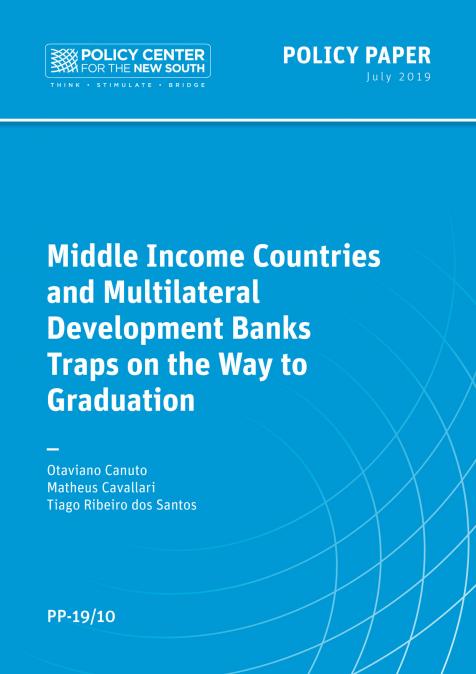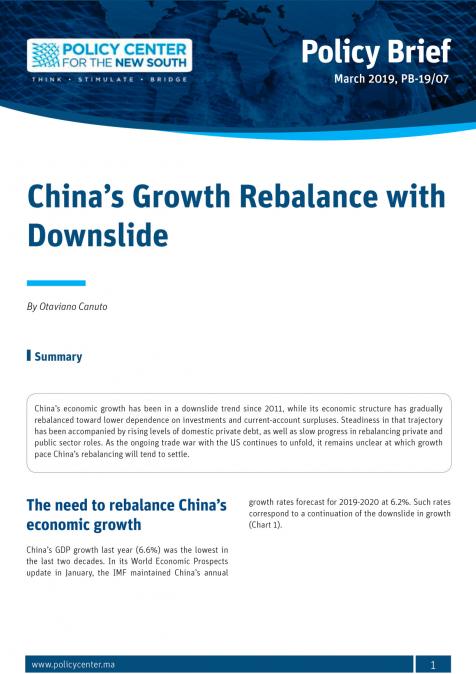Publications /
Opinion
There are various definitions of Energy Security (ES) and numerous ways of understanding the concept. For this blog’s purpose, we will choose the familiar understanding of the latter as put forward by the George W. Bush Administration, i.e. it represents a situation where four characteristics are met, an energy supply that is:
(1) Reliable (2) affordable (3) environmentally sound and (4) accessible.
Thus, ES represents the situation where there’s availability of energy at all times, in various forms, in sufficient quantities, and at affordable prices. In addition, it must also be a situation without the presence of unacceptable and/or irreversible impact on the economy and the environment. In sum, the main characteristics of energy security are reliable supply, appropriate price levels, and the absence of negative impacts on both society and the environment. Moreover, energy security must include the guarantee of energy flows, from production, sale, distribution, and down to the end, the users.
The concept of ES is tightly linked to a concept known as Security Anxiety (SA), which is caused by two main factors that are:
1- The non-sustainable nature of traditional fossil fuel energy; and
2- The imbalance of its distribution on earth.
As a result, the situation of SA can be taken as the main challenge of ES because serious global economic crises are connected with this kind of anxiety. For example, as oil has dominated the modern energy industry, many conflicts happened around the Middle East, which possess most of the world’s oil reserves after WWII. In fact, the four Middle Eastern wars, namely the Iran-Iraq war, were all related to the control of oil. Overcoming such a situation would mean avoiding unilateral actions. The excessive pursuit of one’s own safety did not bring security; on the contrary, it brought disaster.
When reflecting on the past, we noticed that countries today have started to base their strategy on geo-economic factors and use soft power instruments more often, while decreasing the use of hard power. In this respect, China set up a strategy trying to satisfy the four Energy Security conditions (see definition above) by developing interconnections on a global scale.
China has become a net importer of oil after 1993 and of coal since 2008. It surpassed the US as it became the largest crude oil importer in 2017. With over 3 million barrels per day of new refining capacity coming on line in 2016-2020, the refining capacity boom will continue to drive China’s crude oil demand through the 2020’s. The crude oil suppliers expanded from regional countries (1990s), to Middle East (2000s) and Africa and North Sea (2010s) (China International United Petroleum and Chemicals Co. LTd (UNIPEC), September 2017).
Therefore, Energy Security has started to be seen by China as an ability to rapidly adjust to their new dependence on the global market. To do so, China has shifted from its former commitment on self-reliance and self-sufficiency to a new approach of basing energy security on buying stakes in foreign energy fields.
Similarly, in the area of electricity production, China has entered the European market. Since the mid- 2000's, using its world class state-owned organizations, China has initiated an important policy of purchasing energy assets all over Europe.
State Grid Corp of China (SGCC) bought, in 2014, 35% of the CDP Reti fund from the Italian Cassa depositi e prestiti. In Greece, SGCC acquired, in 2017, 24% of Public Power Corp from the Greek state and 75% of the private group Copelouzos. Furthermore, in Portugal, buyout of REN, the national electricity transmission company, equally occurred by the SGCC. Similarly, SGCC obtained a blocking minority in Terna (electricity transmission network operator) present also in other countries such as Montenegro. In addition, Three Gorges Corp (TGC), one of the major actors in this Chinese dynamic, bought, in 2017, an important part of the Portuguese energy company EDP the national electricity producer also present in Belgium, France, Romania, Spain, Brazil and Mexico.
Another key Chinese player involved in Energy Security worldwide is the State Administration of Foreign Exchange Investment Fund (SAFE), a Chinese Sovereign Wealth Fund, which purchased 3% of the Italian National Electricity Company (ENEL) in 2014. Nevertheless, the most important investment of SAFE was the purchase in 2016 of 11% of UK's electricity transmission network. We can additionally add to this list of lucrative buyouts, a 24.9% purchase of Enveco in Lithuania made by China Southern Grid in 2016 and the buyout of 33% of ENE Malta by China Power Investment (An Outlook for Energy Infrastructure Investments : Europe and China, International Energy Knowledge Center, Security Energy Seminar, October 2018).
Buying a large share in the national transmission and distribution of electricity in Europe enabled China to become one of the most active actors in the European energy security value chain.
In addition, taking the opportunity of the Belt and Road Initiative (BRI), China continues to strengthen its cooperation with energy exporting and importing with transit countries. BRI, which proposes “the development of economic corridors connecting China with the rest of Asia and beyond,” is set to play a great role in bolstering regional energy security via fostering transboundary power connectivity such as the CASA 1000 high voltage grid connection and the TAPI gas Pipeline.
Beyond the Eurasian area, the initiative of an international association, the Global Energy Interconnection Development Organization (GEIDCO) - which has already established partnerships with The Arab League, the African Union and the United Nations – gives an idea on one of the new Chinese challenges in terms of energy security that is the implementation of a global energy interconnection. At this stage, a legitimate question could be asked, does China appreciate that Energy Security is a common issue facing the world, and that no country can protect itself, disregarding other countries ?
As providing sustainable clean and modern energy is an important axis in Energy Security, China shows a deep interest towards the field of renewable energies as highlighted by the Executive Director of The International Energy Agency at The Global Forum on Energy Security held in 2017:
“Last year, investment on new renewable electricity capacity in this country (China) was the same as in the European Union and The United State combined. China has the world’s largest wind power market and is the world’s largest producer of hydroelectricity. China is also adding more solar PV capacity each year than any other country. By the end of this year, it is expected that China will overtake Germany as the country with the most installed solar PV panels in the world.”
It should be noted that China became the leader in world overseas clean energy investment with 44.3 US$ billion of total of investment in Pakistan, Nigeria, Germany, UAE, Greece, Nepal, Brazil, Pakistan, Peru, Australia, Philippines, Egypt and Pakistan in Hydro, solar and wind power (Institute for Energy Economics and Financial Analysis Report 2018 – World’s second biggest economy continues to drive global trend in energy investment).
Does it mean that China accepts the idea that the solutions to global ES lie in developing low carbon energies?






